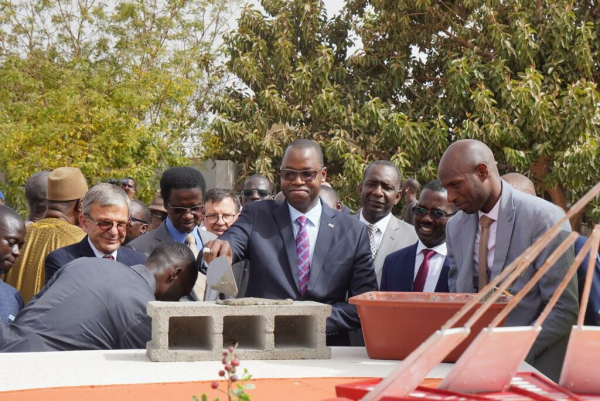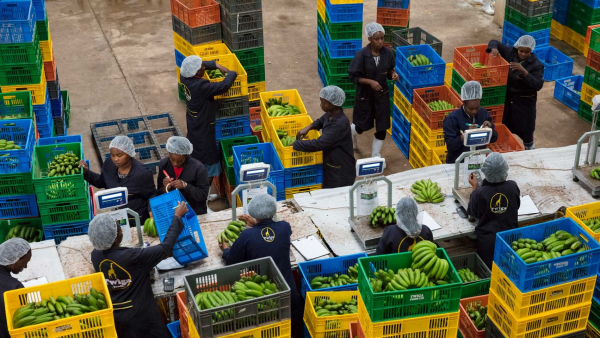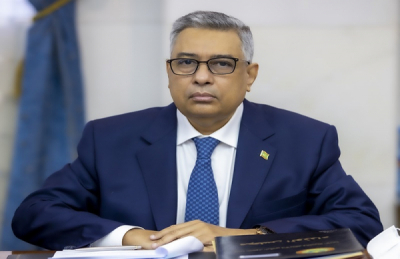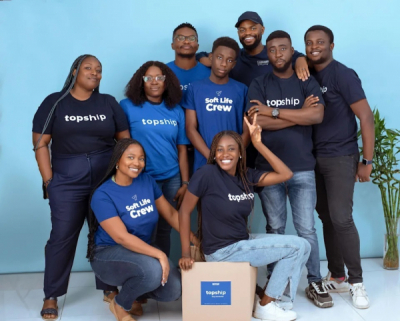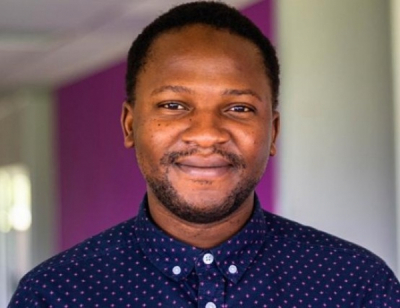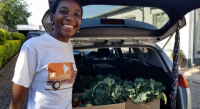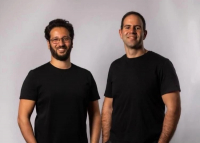Internet is an important tool for socio-economic development in Africa, but the majority of the population still has no access to it mostly because they are far from enabling infrastructures. To address that challenge, operators are turning to satellite internet.
In Senegal, Orange subsidiary Sonatel will improve its broadband coverage through its Gandoul-based ground station. On Tuesday, May 17, on the sidelines of World Telecommunication and Information Society Day and the fiftieth anniversary of the ground station, the operator reactivated the satellite internet infrastructure.
With Gandoul ground station, Sonatel wants to allow internet access for a larger population, notably those located in rural areas far from fiber-optic infrastructures and telecom towers. The service will be provided through “O3b mPOWER,” an advanced communication satellite system currently consisting of eleven satellites, intelligent software, and innovative ground infrastructures. In February 2022, it signed a service agreement with “O3b mPOWER” owner, Société Européenne des Satellites (SES).
"The multi-terabit capacity of O3b mPOWER satellite constellation and its automated ground infrastructure can generate thousands of dynamic beams to deliver unprecedented multi-gigabit per second and low-latency connectivity services to clients in Africa,” Sonatel says.
This will facilitate access to public and private online services for millions of Senegalese. In the long run, Sonatel may even extend its offers to other West African countries.
Gandoul ground station was inaugurated on April 5, 1972, by former president Léopold Sédar Senghor. It was first renovated in 1991, then in 2003 before welcoming Africa’s first intercontinental satellite antenna in 2020. In 1978, the ground station empowered most of Senegal’s international communications, making the country the first to transmit satellite communications in Africa. In 1981, it contributed to the successful launch of NASA’s space program Columbia.
Muriel Edjo
In January 2022, Twiga Foods launched a diversification strategy by adding a range of products to its offering. With Twiga Fresh, it pushes the commitment up a notch to offer quality and affordable food products to Kenyans.
Kenyan agritech Twiga Foods recently launched Twiga Fresh, its subsidiary dedicated to commercial farming. According to Twiga Foods CEO Peter Njojo, the startup invested US$10 million with the support of development funds. The commercial farming subsidiary is already producing watermelons, onions, and tomatoes on a 650-hectare piece of land leased in Taita-Taveta, we learn. To boost its yield, Twiga Foods will use modern farming techniques.
“Twiga Fresh, in addition to our growing range of private label products, will ensure we drive growth in customer numbers and broaden the basket size by offering quality produce at a discount against prevailing market prices,” said CEO Njono.
It is in line with the diversification strategy unveiled by Twiga Foods last January by adding sugar, salt, rice, cooking oil, maize flour, etc to the list of the products it sells. In November 2021, the agritech raised US$5 million to support its East and West African expansion.
The startup, which connects farmers, sellers, and final consumers, promises to continue sourcing fresh farm products to address food inflation. By leveraging technology, it offers low prices by reducing the number of intermediaries in the supply chain. “The commodity-driven volatility in the world today is causing an unprecedented level of food inflation across the world. In Africa, we can least afford this disruption, and that is why we are excited about the imminent impact our technology-enabled supply chain will have in reducing the cost of food,” explained Peter Njonjo.
Ruben Tchounyabe
Since 2020, most African countries have been investing heavily in their digital transformation. Indeed, the coronavirus pandemic demonstrated that their socio-economic ecosystem was not resilient to major crises. Although the pandemic is gradually waning off, they are intent on enhancing their preparedness.
Mauritania's Minister of Digital Transformation Cheikh El Kebir Ould Moulaye Taher (photo), unveiled, Monday (May 16), the key projects to be launched by his Ministry in the coming days.
The projects were presented on the sidelines of a cybersecurity event. According to the government official, the projects include connecting the country to a second subsea cable system, launching a dozen new e-services, accelerating e-governance, and creating a computer emergency response team.
The investments will boost the use of digital tools, which efficiently improve public service and inclusive growth, he added. They will also raise Mauritania’s preparedness for the digital economy. Indeed, in the past ten years, the country made little to no digital progress. It did have three telecom operators and several internet service providers but its internet penetration rate is 35.8%, revealed Hootsuite and We Are Social in the Digital Report 2022.
By enhancing connectivity, e-governance, and cybersecurity, the government wants to improve residents’ access to quality internet and the development of innovative entrepreneurship. Its aim is also to enhance the efficiency of public services whose credibility depends on the security of online users.
In its latest e-government development index (EGDI), the International Telecommunications Union (ITU) ranked Mauritania 38th out of 54 African countries. In its Cyber Security Index, the ITU did not even rank the country because there were no data on its cybersecurity performance.
Muriel Edjo
The seed round raises the volume of funds already raised by Topship this year to US$3 million. With the funds, it intends to upgrade its infrastructure to “make the shipping experience in Africa as easy and stress-free as booking an Uber ride.”
Nigeran startup Topship announced, Monday (May 16), the successful completion of a US$2.5 million seed round to expand its international presence. According to the Tweet announcing the event, the round was led by “Flexport, Ycombinator, Soma Capital, Starling Ventures, Olive Tree Capital, True Capital, Capital X and some amazing angel investors including Immad Akhund (Founder and CEO of Mercury) and Arash Ferdowsi (Co-Founder of Dropbox).”
“With this capital, we plan to invest in strategic partnerships and product innovation tailored to solve a myriad of shipping problems we’ve identified through daily interactions with our merchants,” the startup wrote.
For Topship CEO Moses Enenwali, the startup currently allows 1,500 merchants to send cargoes and parcels to over 150 countries. Following requests from merchants in Ghana, Tanzania, and Kenya, the startup plans to launch operations in those markets.
The coronavirus-spurred e-commerce boom trickled down on the freight market. Although there are actors already offering a mix of air and ocean freight services, Topship wants to focus mainly on the air freight in Africa because the continent is “not yet ready” for heavy cargo freight activities.
“... We don’t have enough ports on the continent. For example, in Nigeria, we have one functioning port, and for ocean freight to work, we need ports, railways, and roads for trucking. But we don’t have the roads, and we don’t have the railways. [...] It’s difficult to connect the continent with ocean freight. [...] So what we’ve seen is the way to connect the continent is via air [since] every country and major city on the continent has a functioning airport, and airlines are flying to all those airports daily,” Enenwali said.
Ruben Tchounyabe
At the end of his University studies, Perseus Mlambo wanted to pursue a legal career but his entrepreneurial drive took the lead, taking him to the African fintech segment. With Union54, he intends to shorten settlement time and decentralize payment card issuance.
Zambian tech entrepreneur Perseus Mlambo (photo) is the co-founder of Union54, a fintech startup decentralizing the issuance of virtual and physical payment cards. Thanks to its API, the startup allows firms to issue branded payment cards without third-party processors or banks.
He launched Union54 in 2021, with Alessandra Martini, to help SMEs easily offer added-value services (loyalty, discount, or credit cards) to their clients. He wants to save them from the painstaking processes he went through to issue debit cards for Zazu, the startup he founded in 2015 to help clients better manage their income.
Perseus is an LLB graduate from Nottingham Law School. He is also a former Ethics Office Support Staff at the United Nations High Commissioner for Refugees. He estimates that it is important to create an alternative debit card issuing network to reduce Africa’s dependence on foreign solutions. With the foreign solutions currently used, Africa can be affected by political decisions and sanctions, he believes.
In April 2022, his startup raised US$12 million in a seed extension round led by Tiger Global. Participating investors included Vibe VC, Earl Grey Capital, and Packy McCormick’s Not Boring Capital. With the proceeds, Union54 will expand its coverage. Currently, the startup claims more than 500,000 virtual cards issued and hours saved for its users.
Melchior Koba
Technology appears like an important tool to solve some of the most pressing challenges in Africa and many entrepreneurs want to capitalize on it.
GoodTalent is a Nigerian startup that allows users to crowdsource, screen, and onboard talents.
Thanks to its cloud-based social platform, the startup founded in 2020 by Jimmy Braimah (photo) helps “reduce cost and time-to-hire” by being a talent pool and instant messaging platform that recommends talents based on their skills. It also offers the possibility to ask the social community for referrals.
The startup wants to change the way companies select, hire and pay talented engineers. “...We are building a company that will be at the forefront of hiring engineers within 1-2 years. We are giving companies a choice to be flexible in their hiring strategy. We all know how startups are losing the “war for engineering talents”, as a result, we are providing the right tools to make it easier for startups with smaller budgets to compete effectively against the larger companies,” explains Jimmy Braimah.
Currently, the services offered by GoodTalent are accessible only through its web platform. Talents register on the platform by providing a set of information including their last name, first name, and email address. They then become visible to partner companies and recruiters that have subscribed to the services. Depending on their subscription type (pricing starts at US$100), recruiters and companies can publish job offers and recruit a fixed number of talents.
Since its creation, the startup has completed several funding rounds totaling US$50,000. In February 2022, it was awarded the Hackernoon Community Startup of the Year 2021 award.
Adoni Conrad Quenum
The coronavirus pandemic boosted the African delivery segment. Unfortunately, some operators are unable to access operational loans. A Zimbabwean startup wants to offer an alternative solution.
Thumeza is a Zimbabwean startup that allows small-scale transporters access to short-term operational loans. Founded in 2018 by Gugulethu Siso (photo), the startup describes itself as an “empathetic alternative financing solutions” provider.
“Access to credit is a lifeline for growth which unfortunately over 70% of small scale transporters active in Africa’s 300 Billion US dollar logistics industry do not have. This is either due to a lack of collateral or credible operational data. This means that as a small scale transporter, options for quick access to assistance are extremely limited should you get a post-paid trip, have a breakdown in transit, need to pay for insurance, or simply need to service your vehicle and meet other day-to-day operational needs,” it explains on its website.
To access Thumeza’s services, users need to register on its web platform (currently, there is no mobile platform) by filling out a Google form. Based on the information collected, Thumeza estimates the volume of credit that can be granted to each user.
In 2021, the startup was named one of 10 finalists in Telecel Group's US$750,000 Africa Startup Initiative (ASIP) program and Startupbootcamp Afritech accelerator. In 2022, the startup expanded its services to Zambia and Kenya with plans to launch operations in South Africa in the coming months.
Adoni Conrad Quenum
Innovative entrepreneurship is considered an alternative solution to unemployment problems in Africa. With the services it facilitates, it is also a major wealth-creator with strong potential. In Egypt, the government wants to capitalize on its potential and reach its 2030 development goals.
In Egypt, President Abdel Fattah al-Sissi instructed a set of measures to facilitate the creation and operation of startups in the country. The top government official instructed the measures during a meeting, Sunday (May 15), with Prime Minister Mostafa Madbouly and ICT Minister Amr Talaat.
To remove obstacles to the creation of startups and companies, the President ordered Amr Talaat to facilitate the creation of companies through a dedicated digital platform. The ICT Minister was also asked to take measures to allow the creation of virtual companies so that entrepreneurs can save creation costs since they will no longer be bound by the requirement to have a physical headquarters. Facilitations are also planned for virtual companies in Egypt.
The other instructions given by President Abdel Fattah al-Sissi are aimed at easing the creation of one-person companies, expanding the establishment of free investment technological zones, and tax exemptions for start-ups. The activation of the whitelists of specialized firms authorized to import electronic components was also instructed.
The national development strategy, Egypt Vision 2030, makes entrepreneurship an alternative solution for youth unemployment. In that regard, the country is taking measures to revive the entrepreneurship drive. Even universities are mobilized to reach that goal. In its report "The Egyptian Startup Ecosystem Report 2021," the Information Technology Industry Development Agency (ITIDA) and Disrupt Africa estimated the number of startups active in Egypt to be 562 in 2021. With the new measures, this number will surely rise exponentially.
Muriel Edjo
During the coronavirus pandemic, several socio-economic activities were halted in Africa. It forced governments to accelerate digital transformation to ensure continuity of public services. Although it was mostly forced on them, the digital transformation seems now to be a key to solving several problems for African countries. For the Malagasy government, the virtual university planned will facilitate access to University courses for thousands of young people.
Madagascar will soon transform its National Center for Distance Education (CNTEMAD) into a virtual university. In that regard, last Thursday, a tripartite framework agreement was signed by Prof Slim Khalbous (photo, center), rector of the AUF, Elia Béatrice Assoumacou (photo, left), Madagascar’s Minister of Higher Education, and her peer of the Ministry of Posts and Telecommunications Tahina Michel Razafindramalo (photo, right).
The virtual university will be established by creating a virtual network of the CNTEMAD regional centers/agencies, dematerializing administrative tasks, and rolling out an e-learning platform to allow access to the regional centers’ digital resources.
Under the framework agreement mentioned above, the Francophone University Agency (AUF) will support the project in five key areas. First, it will carry out studies to determine the best options for the projects. Secondly, it will mobilize international experts for the implementation of the project. Then, it will ensure the application of best practices in the management of digital spaces and the development of online courses. It will also train the teaching, technical and administrative staff involved in the project. The last key area is helping the government find international partners and backers for the virtual university project.
The support provided by the AUF aligns with one of the key focuses of the latters’ 2021-2025 strategy, namely “digital transformation and university governance.”
The virtual university is in line with Madagascar’s digital transformation strategy aimed at leveraging information technology for socio-economic development. Indeed, with the virtual university, the government wants to facilitate access to university courses for thousands of young people who lack the necessary financial resources to settle in Antananarivo to pursue university studies. Thanks to the virtual university, they can take university courses anywhere they are in the country. All they need is a connected laptop or smartphone.
Ruben Tchounyabe
His about ten years of professional experience with an end-to-end solution provider in the utility industry prepared him for the tasks ahead. With Pylon, he wants to end losses and frauds in the utility industry.
Ahmed Ashour (photo, right) is an Egyptian entrepreneur, co-founder, and CEO of Pylon, a startup helping utility companies fight frauds.
Co-founded in 2017 with Omar Mohamed Radi (photo, left), Pylon is a smart public infrastructure management startup, which collects data, analyzes them, and pinpoints places where there is possibly theft or production loss in the supply network. It also helps automatizes the invoicing process, mitigating errors and financial losses for utility companies.
With Pylon, Ahmed Ashour wants to reduce water loss by 22% in emerging markets -currently, emerging markets lose more than 45 million metric cubes of water daily- and help provide water to more than 40 million people and reduce CO2 emissions by one gigaton by 2035.
To fulfill those ambitions, the tech entrepreneur secured US$19 million from angel investors, investment funds, and venture capitalists. Thanks to the funds secured, his startup will enter new markets apart from its current ones, which are namely Egypt and the Philipines. He specifically targets emerging markets in Africa, Latin America, and Southeast Asia.
Asour has over ten years of professional experience in the utility industry. After his Bachelor of business administration from the American University in Cairo, in 2009, he climbed up the ladder in that industry up till 2018.
Almost all of his professional career was spent with El Sewedy Electrometer Group, a provider of end-to-end metering solutions and services to water, electricity, and gas companies. He held several positions including sales and marketing director.
In 2016, while still working for El Sewedy Electrometer Group, Asour became a director of the board of Prime Alliance AISBL, an alliance that supports the development of smart metering and grid solutions. In 2021, he was one of the participants of the Y Combinator accelerator’s S21 cohort.
Melchior Koba
More...
TopUp Mama was launched to facilitate restaurants’ access to foodstuff and improve their efficiency.
TopUp Mama is a Kenyan startup which helps restaurants access affordable food products, financial services, and management solutions. Founded in 2021 by Njavwa Mutambo, Emilie Blauwhoff, and Andrew Kibe, the startup completed several funding rounds securing US$2.2 million overall.
For Ventures Platform founder Kola Aina, TopUp Mama helps “restaurants grow their customer base while improving efficiency.”
“I grew up in the restaurant business in Zambia, and I know first-hand the power small businesses have in transforming lives. This is why we’re passionate about increasing restaurant contribution to Africa’s GDP. We believe we have a unique opportunity to build Africa’s most prominent restaurant partner and build one of the largest companies Africa has ever seen,” indicates TopUP Mama’s co-founder and CEO Njavwa Mutambo.
TopUp Mama’s services can be accessed through a mobile app, available for android and iOS users. When the user (a restaurant owner most of the time) registers, he/she can buy goods, pay later, and even get them delivered wherever wanted. The startup awards loyalty points to the best clients among its more than 3,000 clients/restaurants.
In February 2022, the startup was selected to be in Catalyst Fund’s “tenth cohort of fintech companies that are building solutions designed to improve the resilience of underserved and climate-vulnerable communities in emerging markets.”
Adoni Conrad Quenum
Postal services are important for socio-economic development. However, in several African countries, it is not the case because the old systems are still being used. Most of those countries have decided to address the situation by using new technologies.
The Nigerian Postal Service (NIPOST) and the National Population Commission (NPC) recently signed a Memorandum of Understanding (MoU) to roll out digital postcodes in the country. The agreement was announced by Dr. Ismail Adebayo Adewusi, Postmaster General of NIPOST, during a press briefing last Thursday.
According to the Postmaster-General, the adoption of a digital postcode system will improve the efficiency of the postal administration. It is a critical system for Nigeria, where some streets have no name and properties no number to identify them, he added.
“We drew up entities in a manner that ensures every part of the country is effectively captured, using a systematic framework of alphanumeric characters from the State, Local Government Areas, Postcode Districts, Postcode Areas, and Postcode Units,” Dr. Ismail Adebayo said.
The transition from the old analog postcode system introduced in 1986 is expected to help improve mail sorting, delivery, response to emergencies, tax collection, and postal services as well as reduce crimes (banditry and frauds) and internet scams. In that light, it will boost trust between entrepreneurs and their clients.
“Such advanced addressing system will promote the proper functioning of not just the Postal sector. It is a critical infrastructure for meeting the United Nation’s Sustainable Development Goals, including poverty reduction, disease control, and provision of basic services such as water and electricity,” the Postmaster-General explained.
Ruben Tchounyabe
In about eight years, he succeeded in making Farmerline a choice partner for Ghanaian smallholder farmers. His ambition is to do the same in the whole of Africa in the coming years.
Ghanaian entrepreneur Alloysius Attah (photo, left) is the co-founder and CEO of AgTech Farmerline. Co-founded in 2013 with Emmanuel Owusu Addai (photo, left), his startup supports farmers’ growth and performance with a combination of digital and logistics tools. It specifically improves farmers’ access to market information, farm inputs, and funds.
The tech entrepreneur graduated from the Kwame Nkrumah University of Science and Technology (KNUST) in 2012, with a BSc in Natural Resource Management. In 2021, he obtained the Standford Seed Transformation Program Certificate from the Standford University Graduate School of Business.
Thanks to Farmerline, Alloysius Attah was one of the seven finalists for the 2014 Unilever Sustainable Living Young Entrepreneurs Awards. In 2015, he was a guest lecturer at the Alliance for Science Global Leadership Fellows Program, Cornell University, New York. The same year, his dynamism secured Farmerline a spot in the European Union’s CTA Top 20 Innovations that Benefit Smallholder Farmers. In November 2021, the young entrepreneur was one of the speakers invited to the Bloomberg New Economy Forum organized under the theme “Feeding the World: Agriculture and the Health of the Planet.”
In about eight years, he succeeded in making Farmerline a choice partner for Ghanaian smallholder farmers. His ambition is to do the same in the whole of Africa in the coming years. For that purpose, in April 2022, he secured US$12.9 million in pre-Series A funding. US$6.4 million was invested by Acumen Resilient Agriculture Fund, Greater Impact Foundation, and Dutch Development Bank FMO. The remaining US$6.5 million was secured as debt participation from DEG, Rabobank, Ceniarth, Rippleworks, Mulago Foundation, Whole Planet Foundation, Netri Foundation, and Kiva.
“With this new investment, we will scale the AI capabilities within Farmerline’s Mergdata platform to help increase the income of farmers and agribusinesses; supporting them to access farm inputs; supplying them with assets such as tricycles, tractors, and threshers; and connecting them to global markets,” Mr. Attah said. The startup also plans to deepen its relations with Ivorian partners.
Melchior Koba
In Africa, healthcare access is still limited despite the reforms and projects implemented by governments. To address the situation, private firms, and startups are stepping in.
Canadian firm UniDoc Health announced Wednesday (May 11), an agreement with Northern Pacific Global Investment Services Limited to offer telehealth services in Nigeria.
Under the agreement, UniDoc Health will lease some telehealth equipment and license software to allow Northern Pacific to offer the intended services in the target country. The software to be licensed include UniDoc Health’s proprietary solution VCSM which integrates “a range of physical products, web-based services, and analytical tools, along with access to the Company’s developing network of healthcare providers, pharmacies, and hospitals.”
“UniDoc’s goal is to make health care accessible to everyone. We are excited to work with our Partner to bring our Virtual Care Solutions Model to the people of Nigeria. Our kiosks will help to allow our Partner’s network of health care professionals to reach patients in remote locations throughout the country,” said UniDoc CEO Antonio Baldassare.
As is the case in several African countries, Nigeria’s medical density is below WHO recommendations. The UN Agency recommends at least 2.3 medical staff per thousand residents. However, according to data published by the World Bank in 2018, Nigeria’s density is 0.4 doctors per 1,000 residents. The agreement between UniDoc Health and Northern Pacific offers an innovative solution to the problem by allowing the population living in remote areas access to healthcare, through the VCSM. During the five-year leasing period, up to 1 million patient subscribers will be taken care of.
Adoni Conrad Quenum


